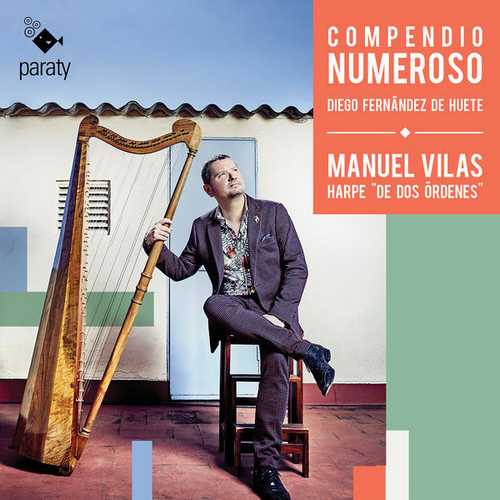

Composer: Diego Fernández de Huete
Performer: Manuel Vilas
Format: FLAC (tracks)
Label: Paraty
Catalogue: 738089
Release: 2021
Size: 637 MB
Recovery: +3%
Scan: yes
01. Gallardas
02. Canción flamenca
03. Canción italiana
04. Paradetas
05. Dios te salve María
06. Pasacalles de segundo tono
07. Bacas
08. Canción mallorquina
09. Españoletas
10. Gaita zamorana
11. Pasacalles de tercer tono
12. Matachines
13. Canción francesa
14. Canción portuguesa
15. Balenciana
16. Tarantelas
17. Gaita-Mariona agaitada
“As a harpist specializing in the cross-strung harp, an Iberian harp so called for having two rows of crossing strings, the recording of the album culminates a lifelong project. My teacher Nuria Llopis mentioned Diego Fernández de Huete during my first cross-strung-harp lesson in the early 90s of the last century. The first piece I prepared as a student was none other than the gaita (track 17) and, from that moment, Huete’s music accompanied me, as much in my student years as in my professional recitals, which always include works by this composer.
Huete’s harp treatise represents the quintessence of the historic harp and a true reflection of seventeenth-century European instrumental music. Here we find every theoretical and technical aspect of this instrument, including ways to approach the fingering, the tempos, the instrument’s issues regarding sonic neatness, phrasing, dynamics, rules for accompaniment, etc. I consider it the baroque harpist’s bible, whose careful study offers the musician many solutions and whose rereading always yields novel answers and ideas. Huete’s work takes the instrument’s possibilities to their limit, just as much as those of its player by testing the harpist’s ability.
Diego Fernández de Huete is tied to the city of Toledo and its cathedral, where, from 1681 to 1710, he served as a harpist in the music chapel. He dedicated his life to this instrument and was also an organist. The harp and the organ, two closely related instruments, share a common history since many harpists were also organists and vice versa. When Huete decided to publish his masterpiece, the Plentiful Compendium, he had plenty of experience as a harpist; over 30 years of study and professional playing granted him a great deal of authority to transmit all his knowledge and mastery.” (Manuel Vilas)